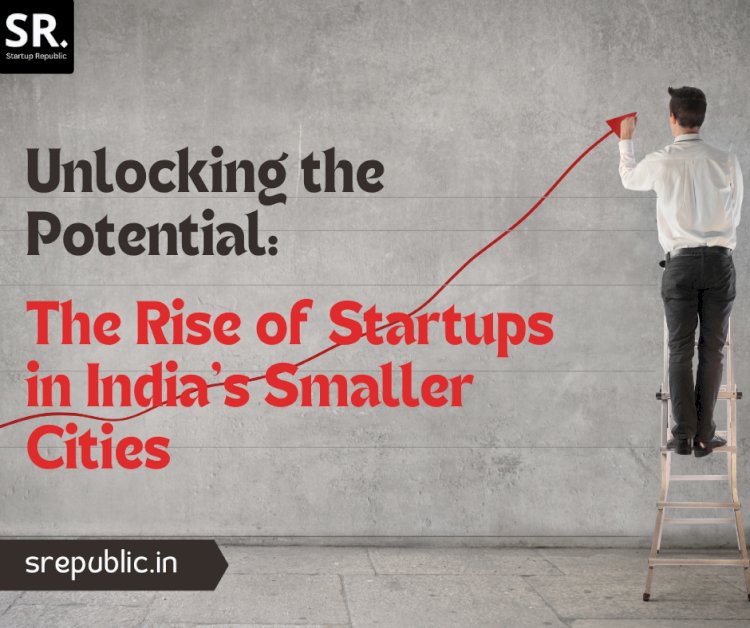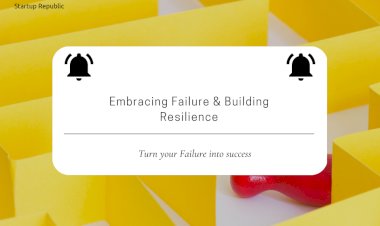"Unlocking the Potential: The Rise of Startups in India's Smaller Cities
India's startup revolution has seen a tremendous rise in recent years, with a surge of new businesses emerging across the country. While traditionally limited to larger cities like Bengaluru, Mumbai, and Delhi-NCR, the trend is rapidly shifting. In this blog, we explore the rising trend of startups in Tier 2 and Tier 3 cities of India, examining the factors driving this shift and the impact it is having on the country's economy.

India has seen a significant surge in the number of start-ups in recent years. While Bengaluru, Mumbai, and Delhi-NCR have been the traditional hotspots for start-ups, the trend is rapidly changing. According to recent reports, approximately 50% of the recognized start-ups in India are based out of Tier 2, Tier 3, and Tier 4 cities.
This is a significant shift from the past when only a handful of start-ups emerged from these regions. The credit for this trend goes to the increased availability of resources, infrastructure, and supportive government policies in smaller cities and towns.
Cost of Living
One of the primary reasons for this trend is the lower cost of living and doing business in these cities. Start-ups in Tier 2 and Tier 3 cities can save on operational costs like office rent, salaries, and logistics expenses. This allows them to allocate more resources towards product development, marketing, and expansion.
Moreover, many of these cities have been investing heavily in improving their infrastructure to attract businesses. For instance, cities like Indore, Bhubaneswar, and Jaipur have launched their own start-up policies and incubation centers. They are also providing tax incentives and funding support to start-ups to encourage entrepreneurship in the region.
Availability of skilled talent
Another reason for the rise of start-ups in Tier 2 and Tier 3 cities is the availability of skilled talent. With the increasing number of engineering and management colleges in these cities, the talent pool has grown significantly. This has made it easier for start-ups to find talent at an affordable cost, which is critical in the early stages of a start-up.
Technology
The rise of technology and the internet has also played a significant role in enabling start-ups in Tier 2 and Tier 3 cities. With the availability of cloud-based technology, mobile apps, and e-commerce platforms, start-ups can operate from anywhere, as long as they have an internet connection. This has opened up opportunities for entrepreneurs to launch their ventures from smaller cities and towns.
The supportive Government Policies
Finally, the supportive government policies have been instrumental in encouraging entrepreneurship in smaller cities. The government has launched several initiatives, such as the Startup India program, to promote start-ups across the country. These policies have provided a much-needed boost to the start-up ecosystem in Tier 2 and Tier 3 cities.
Final Though
The rise of start-ups in Tier 2 and Tier 3 cities is a positive development for India's economy. It has led to the creation of jobs, innovation, and economic growth in smaller cities and towns. With the increasing availability of resources and supportive policies, we can expect to see more start-ups emerging from these regions in the coming years.
























